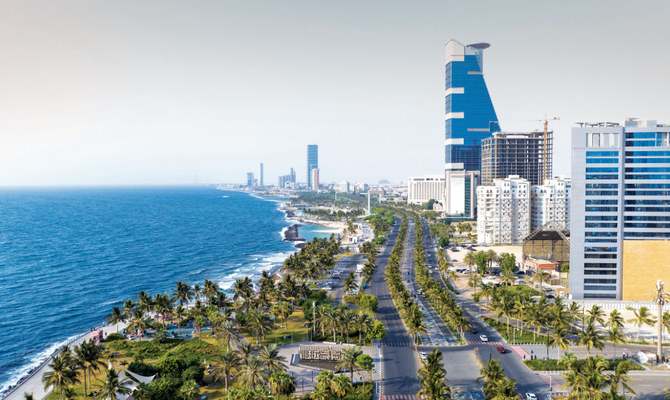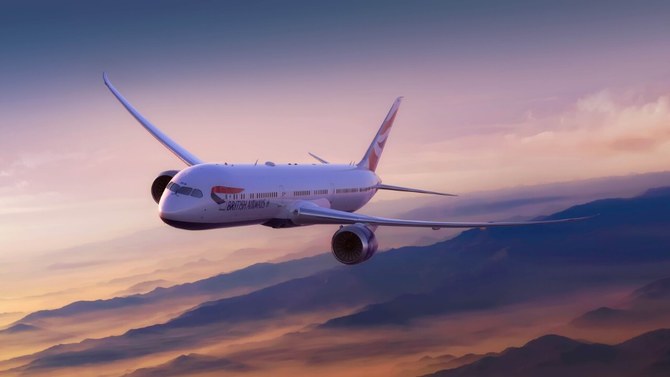RIYADH: On Sept. 10, Saudi Arabia’s Crown Prince Mohammed bin Salman announced the signing of a memorandum of understanding between India, the Middle East, and Europe for the construction of a new economic corridor.
The MoU was signed between India, the US, UAE, France, Germany, Italy and the EU.
The ambitious trade and investment initiative includes an eastern corridor that connects India to the UAE, Saudi Arabia, Jordan, and Israel, and a northern corridor linking those Middle Eastern countries to Europe.
Speaking during the G20 Summit in New Delhi, the crown prince said the project seeks to “strengthen economic interdependence” and common interests of the countries involved.
“The world stands at an inflection point in history,” said US President Joe Biden while addressing the India-Middle East-Europe Economic Corridor summit that was held in New Delhi on the sidelines of the G20 summit and called the agreement “historic.”
Indian Prime Minister Narendra Modi said in a recent radio address that IMEC will become the basis of world trade for hundreds of years to come.
The transport corridor serves to further centralize the energy-rich Gulf states within the global economy, placing them at the center of geoeconomic activity.
In so doing, the IMEC represents an economic shift away from the West to the East and the Global South, shifts that have been taking place since the financial crisis in 2008 and which have continued.
The corridor, through its geographical and economic positioning, is likely to accelerate that shift.

It is clear that banks are focusing their lending activities on what is known as ‘productive lending’ such as education and other productive economic sectors.
Talat Zaki Hafez, Economic columnist and banking expert
While the IMEC is in its infancy, it is being lauded for its ability to provide alternative trade routes to thriving markets of the Middle East and Europe, extending India’s reach to North Africa and North America.
“The economic impact on Saudi Arabia and India is great, especially concerning the already strong bilateral economic and trade relationship between the two countries that dates back to 1947 and the bilateral trade between the two countries,” Talat Hafiz, a Saudi economic writer and banking expert told Arab News.
“The volume of trade exchange between Saudi Arabia and India in 2022 reached $52.4 billion and the value of Kingdom’s exports to India amounted to $41.9 billion, of which $8.14 billion are non-oil exports, while the Kingdom imports from India amounted to $10.5 billion,” he added.
In a recent column for Arab News, GCC Assistant Secretary-General for Political Affairs and Negotiation Abdel Aziz Al-Uwaisheg stated that from a Gulf standpoint “the new venture will solidify the region’s historical position as the primary trade route linking Asia, Europe and Africa.”
Al-Uwaisheg highlighted the route’s emphasis in energy trade and how it capitalizes on the region’s comparative advantage in providing cheap and reliable energy to the rest of the world.
The eight IMEC signatories – Saudi Arabia, UAE, India, France, Germany, the US, Italy and the EU – account for approximately half of the world’s economy and 40 percent of its population.
This means, states Al-Uwaisheg, that the corridor has the potential to transform global trade and development as the signatories commit to the right resources.
Talmiz Ahmad, former Indian ambassador to Saudi Arabia, the UAE and Oman, told Arab News that his country is “already a very major trade partner for all the countries of the GCC, including Saudi Arabia.”
He added: “Saudi Arabia is already our number four trade partner in the world globally and the number one supplier of petroleum to India.”
The former diplomat further added how India has substantial trade relationships with all the countries of the GCC.

It will definitely improve and enhance the overall trade activities between Saudi Arabia and South Asia, also simply because it will shorten the trade flow time by six to three days, which in turn will improve the frequency of trade between Saudi Arabia and South Asia.
Talmiz Ahmad, former Indian ambassador to Saudi Arabia, the UAE and Oman
“It is based on the purchase of energy trade and investments. It’s already a very substantial relationship and in South Asia and the Arabian and the Arabian Peninsula are already extremely well connected,” he said.
Ahmad notes how Saudi Arabia has been speaking about having a railway project across the Arabian Peninsula for the past 10 to 15 years.
The corridor, he emphasized, offers the chance to give the Saudi-India economic partnership “new value.”
“It should go beyond business into something which we would call a genuine and substantial strategic partnership,” he told Arab News, adding: “I would recommend, given Saudi Arabia’s important presence in the Gulf as well as in the Red Sea, that there is hope for maritime security cooperation between India, the Middle East and Saudi Arabia. The core partners should be India and Saudi Arabia, and they can bring in other partners as the situation warrants. I am saying this because the most important area for regional interests is the Western Indian Ocean, particularly the Arabian Sea.”
The corridor, which will comprise a 4,800-kilometer trade route linking India to the Arabian Gulf states and Europe, will include pipelines for electricity and hydrogen.
It will comprise two separate routes: an east corridor that links India to the Arabian Gulf, and a northern corridor connecting the Gulf states to Europe.
Additionally, the sea and rail route will foster the transit of goods and services as well as digital and electronic connectivity and export clean hydrogen.
The crown prince has previously said the project intends to enhance trade between the participating countries, boost the import of energy supplies, including hydrogen.
“It will definitely improve and enhance the overall trade activities between Saudi Arabia and South Asia, also simply because it will shorten the trade flow time by six to three days, which in turn will improve the frequency of trade between Saudi Arabia and South Asia,” adds Hafiz.
He further explained how the new corridor is significant for both regions “in the medium and long term, as it will not only shorten the shipping time of goods between the two regions but also save on the cost of shipping and transport.”
It also, states Hafiz, “encourages prompt businesses between the two regions.” IMEC is being established during a time when Saudi Arabia is looking to expand its trade with the world.
“This is opening new routes of business with friendly countries such as India and other parts of the world also as a way to strengthen its economy and diversify it away from a reliance on oil,” explains Hafiz. “[IMEC] will help the Kingdom achieve its Vision 2030 objectives and improve its non-GDP and non-oil exports.”
The corridor does have geopolitical implications. One is the current war between Israel and Hamas raising a question mark on when and how the IMEC is likely to go ahead.
It is also not the first time that a massive trade route with aims to stretch across the globe has been launched.
In 2013, China announced its One Belt One Road initiative, a global infrastructure development strategy adopted by Beijing to invest in more than 150 countries and international organizations.
Yet this project, also known as the Belt and Road initiative, is facing questions over its significance amid China’s slower economic growth.
Hafiz argued that even with these concerns, as well as the boost to the US’ profile in the region given by IMEC, the presence of both projects is a potential “win-win” situation.
“There should be any geopolitical impact of IMEC compared to China’s Belt and Road Initiative, since both of them contribute positively to global trade and serve the trade and economic interest of the countries who are part of the two trade agreements,” he told Arab News, adding that the two projects offer the potential for greater synergies of integration and cooperation through economic means and a way to further expand the already growing avenues for business in the region.























